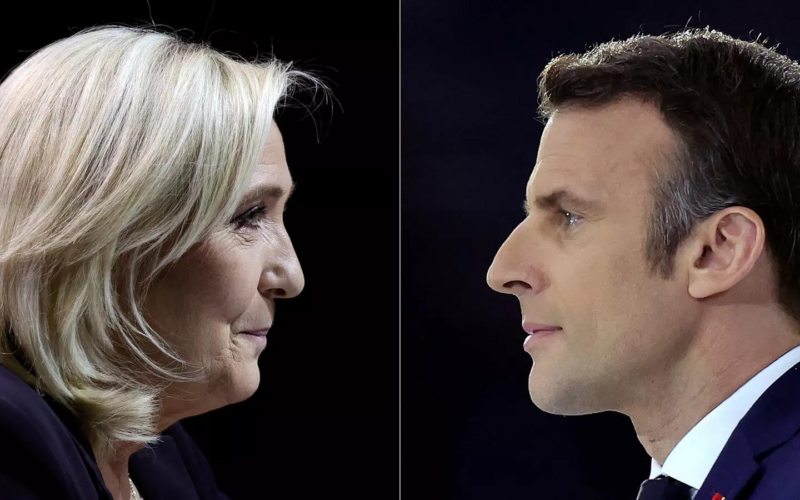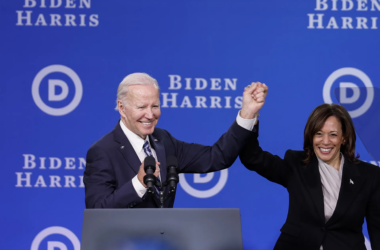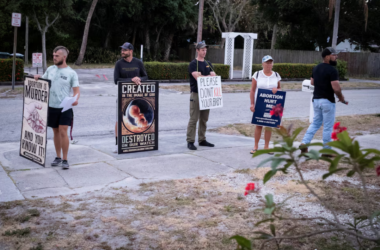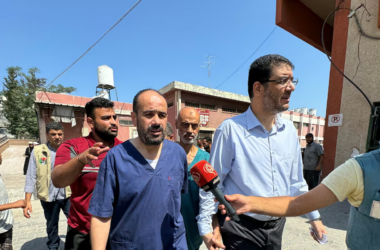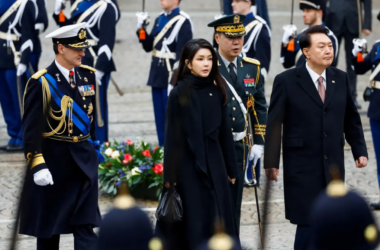France has entered a period of high-stakes election campaigning following President Emmanuel Macron’s call for snap parliamentary elections. This decision, which has puzzled many political observers, comes after a significant defeat for Macron’s party by the far-right in the recent European Parliament elections. The elections are set to take place on June 30, with a crucial second round on July 7.
President Macron, whose centrist alliance is struggling to gain traction, decided to dissolve the National Assembly three years ahead of schedule. His party, facing low support, risks losing control to the far-right National Rally (RN), led by 28-year-old Jordan Bardella. Macron’s move is seen by some as a high-stakes gamble that could see Bardella ascend to the position of prime minister.
Political analysts and former leaders have expressed bewilderment at Macron’s decision to hold early elections, warning it could inadvertently empower the RN. Former President Nicolas Sarkozy voiced concerns about Bardella’s lack of experience and the potential for the Republicans (LR) to be overshadowed by the RN.
Candidates had until Sunday evening to register for the 577 seats in the lower house of the National Assembly. One notable candidate is Marie-Caroline Le Pen, the elder sister of Marine Le Pen, the RN’s well-known three-time presidential candidate. She will stand for election in the central Sarthe region. Her daughter, Nolwenn Olivier, is Bardella’s former partner, highlighting the intertwining relationships within the far-right faction.
Amid the political fervor, French football star Kylian Mbappé has spoken out against the rise of extremist ideologies. Representing France at the Euro 2024 tournament in Germany, Mbappé urged young voters to participate in what he described as a “crucial moment” for France. He echoed sentiments made by his teammate Marcus Thuram, who had called on the nation to actively oppose the RN.
Mbappé emphasized the importance of the election, stating, “We have the opportunity to choose the future of our country,” and reaffirmed his stance against divisive and extreme ideas.
The new left-wing alliance, the New Popular Front, which includes Socialists and hard-left factions, faces internal struggles. Prominent members from the France Unbowed (LFI) party, including Adrien Quatennens who withdrew his candidacy following a domestic violence conviction, have seen their re-nomination blocked.
On the right, the decision by LR leader Eric Ciotti to pursue a coalition with the RN has caused significant turmoil within the party. The leadership’s attempt to dismiss Ciotti was temporarily halted by a Paris court, and the LR is now fielding a candidate against Ciotti in his home region of Nice.
President Macron is set to return to domestic campaigning after attending the G7 summit in Italy and the Ukraine peace conference in Switzerland. Despite suggestions to allow the popular Prime Minister Gabriel Attal to lead the campaign, Macron remains actively involved, aware that his political future could be severely impacted by the election outcome. Former Socialist Prime Minister Lionel Jospin criticized Macron for rushing the election process and warned that the move might pave the way for the RN to gain power.
In the coming weeks, the political landscape in France will be shaped by intense campaigning and strategic decisions as the nation approaches a pivotal election.




